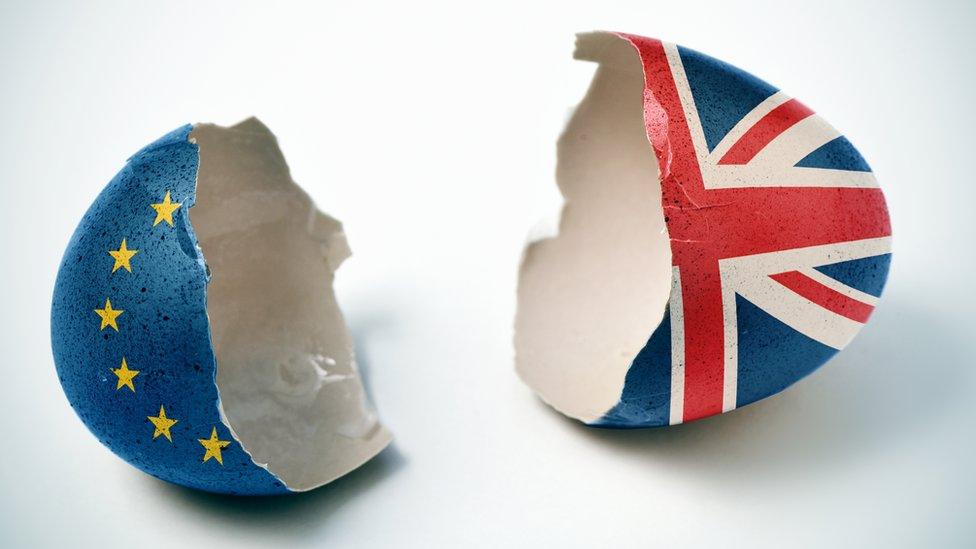Reality Check: Has the election changed EU views of Brexit?
- Published

As Theresa May negotiates with the Democratic Unionist Party after losing her Commons majority in last week's general election, has the view of Brexit changed in key EU capitals?

France: Hugh Schofield, Paris
The official French line, as articulated by Prime Minister Edouard Philippe, is that the UK election will make little difference to the Brexit talks. The tone may change, he said, but otherwise we will be proceeding as before.
Inevitably though, there is speculation about what Theresa May's rebuff by the electorate will mean. How will it change the negotiating stance of the UK team in Brussels? Has the prime minister decided to ease back on her "hard Brexit" preference, to take account of the vote? Or will political weakness now leave her even more prey to Tory hardliners?
For the conservative newspaper Le Figaro: "The elections have left the UK without either a consensus on the objectives of Brexit, or a political mandate to bring it about."
The juxtaposition of the UK and French legislative elections also leaves - for the French - a rare feeling of glee. That's because the conclusion from the results is inescapable: while the UK seems increasingly mired in division and political chaos, France under Emmanuel Macron and his likely massive majority has never looked so full of potential.
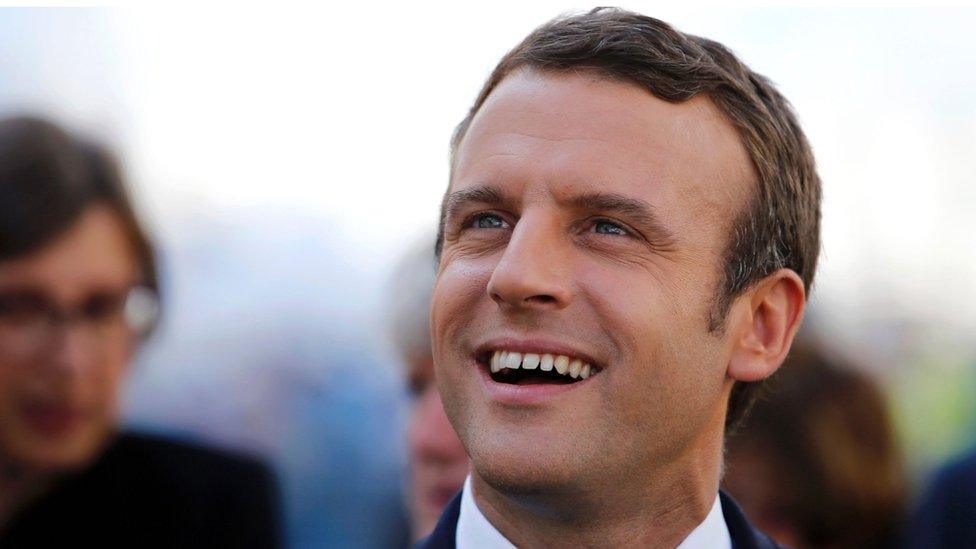
How President Macron chooses to play this in his talks later on Tuesday with Theresa May remains to be seen. He is a charming Anglophile who approves of free markets and understands the City. So he will not bite.
On the other hand, he is also emerging as the champion of a newly invigorated EU. And for many who support him in that endeavour, the removal of the UK from the European scene is no longer to be regarded as a disaster, but an opportunity.
He himself has spoken of Brexit as a crime - but now that it is happening his policy is no concessions. "It is Britain who will lose the most," he said before he became president.
President Macron wants to see the UK suffer - not for the sake of punishment, but for the sake of the EU. He wants to make it clear that leaving the EU comes at a cost, because the EU needs to be preserved and reinforced as a political project. So there can be no special arrangements for London.
He will say this clearly and forcefully, and - unlike Theresa May - with the conviction of a man with a mandate.

Germany: Jenny Hill, Berlin
This morning, as a politically hamstrung Theresa May dealt with the fallout from her disastrous election, Angela Merkel (comfortably cushioned by solid approval ratings) congratulated Emmanuel Macron on his success at the polls this weekend.
And a few hours later, as British press and politicians squabbled and speculated about what kind of Brexit might now follow, the German government quietly reconfirmed its intention to poach the London-based European Banking Authority and European medicine regulator in the wake of Britain's departure.
As Mrs May tries to rebuild cabinet and career, her European neighbours have construction projects of their own. The Germans and the French are planning an EU defence fund, closer co-operation - a new future for Europe without Britain.
Of all of the EU member states, Germany was arguably the most saddened by the loss of its political and economic ally when the UK voted to leave. The government looked on again in horror as Theresa May gambled and lost. But German pragmatism prevails.
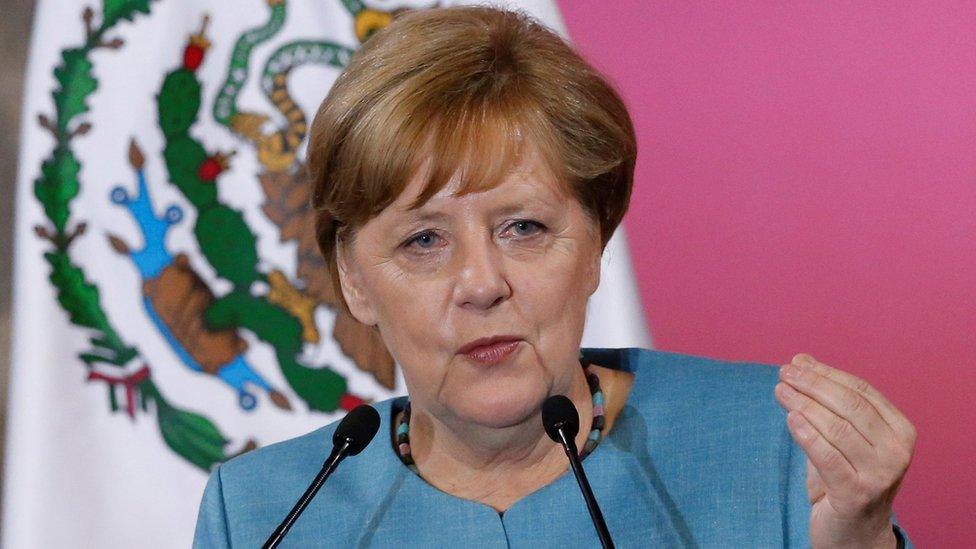
Angela Merkel has made it known she expects Britain to honour its promise to begin exit negotiations a week today. Theresa May has said she'll stick to the timetable. There's a degree of concern here. Many doubt she'll remain in post long enough to see the divorce through. Those with more confidence fear there'll be little room for compromise on the part of a weakened PM. Most expect delays at the least. "It's the worst possible outcome," lamented one German MEP.
But what's cheered Europhile Germany up is the fairly widespread interpretation of the election result as a wholesale rejection of the hard Brexit and anti-EU rhetoric of Theresa May. Perhaps, some speculate, Britain will strike a more conciliatory tone, seek a softer Brexit, opt for a closer relationship.
And it raised the prospect of what the German tabloid Bild giddily referred to as a possible "Exit from Brexit". A Breversal is something most Germans like to entertain - in theory. But, in reality, few expect it. The German government's Brexit working group has been plugging away for months at the laborious practicalities of disentanglement. A rejuvenated Franco-German axis is planning for the future. The UK's decision - though unwelcome - has been made. The work's begun. A somewhat exasperated Berlin wants Britain to get on with it.

Poland: Adam Easton, Warsaw
The UK election result hasn't really changed attitudes towards Brexit in Warsaw.
Perhaps impatience is growing because the government here wants to have clarity and know with whom they are dealing. There's an expectation that the negotiations may have to be delayed.
The priorities for the Polish government remain securing the rights of Polish citizens already living in the UK and resolving the financial settlement.
The first issue is very important because, according to the UK Office for National Statistics, 916,000 Poles live in Britain, making them the largest non-British nationality in the UK.
The second issue matters because Poland is the biggest net recipient of funds under the current 2014-2020 EU budget. The UK is one of the biggest net contributors to the budget, and, if it leaves the EU before 2020, some here fear the flow of money to Poland could be reduced.
Before the Brexit referendum, Poland's governing Law and Justice Party named Britain as its most important strategic ally in Europe.
Law and Justice and the Conservatives are political allies in the European Parliament and they shared a view that the EU should be a free trading bloc consisting of strong nation states.
Warsaw would prefer it if Brexit didn't happen and it wants to maintain a close relationship with London once the process is completed.
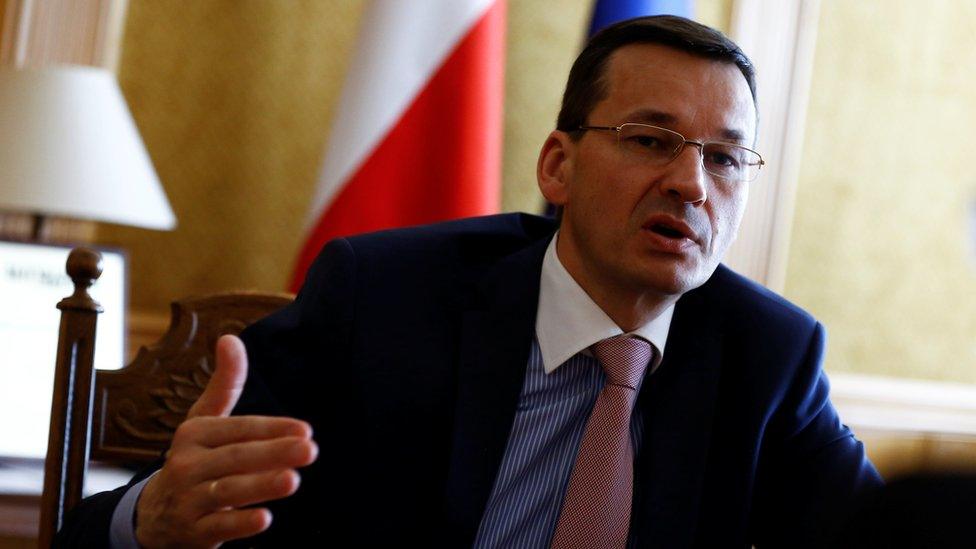
"If the result of this [UK election] is the possibility of a more soft exit and a compromise Brexit model, then I would be happy with that," Poland's Deputy Prime Minister Mateusz Morawiecki said.
"If, as a result of these elections, a government emerges with a more common-sense and conciliatory approach to the Brexit negotiations, then, who knows, perhaps the British public will decide it's worth staying in Europe," he added.

Republic of Ireland: Shane Harrison, Dublin
This week Ireland will get a new prime minister, Leo Varadkar.
He will be the youngest ever at 38, and is also a committed Europhile. He flew to Paris to show his support for Emmanuel Macron after the first round of voting in the French presidential election.
Since the final outcome of the UK's general election became clear, Mr Varadkar has been very consistent in his public comments.
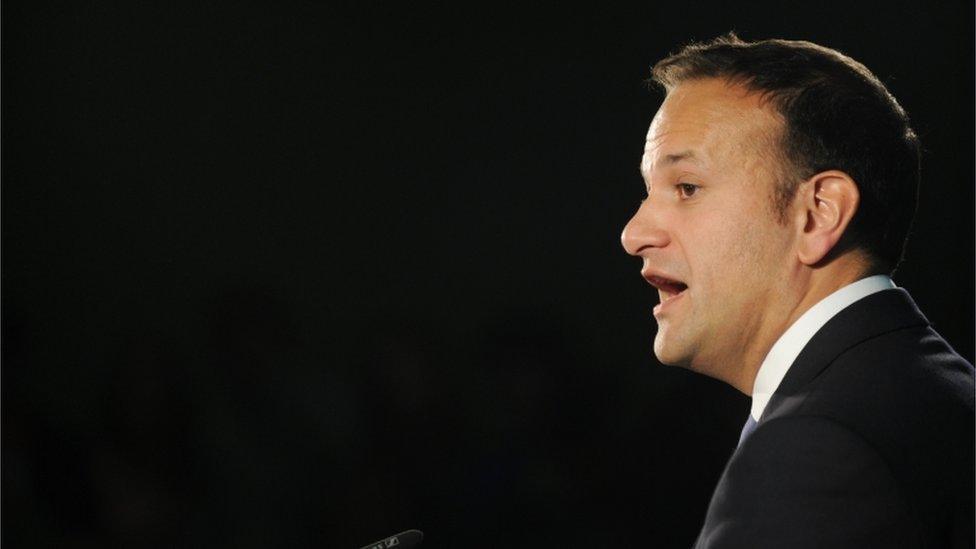
Mr Varadkar has come to embody the liberalisation of a country
He believes that a softer Brexit is now more likely, and he also thinks the results provide opportunities for the Irish to get further recognition for their concerns about Brexit.
Dublin does not want to see anything that endangers the Northern Ireland peace process, or anything that might lead to a hard border on the island - the only land frontier between the UK and the EU post-Brexit.
The Irish government also has concerns about the impact the UK leaving the EU might have on the billions of pounds in trade between the two states.
Although there is much dismay in other parts of the UK about the putative arrangement between the Conservative Party and the Northern Ireland-based Democratic Unionist Party in the next Parliament, the Irish government takes some comfort from the fact that the DUP - despite being the only major Northern Ireland party to support Brexit - also wants a soft Brexit.
Like most other EU27 countries, Ireland initially believed that a Theresa May-led government with a huge majority would be the best result of the UK election.
But there is now a growing realisation that the hung parliament and Conservative-DUP arrangement may better serve Irish Brexit concerns after all.

Sweden: Maddy Savage, Stockholm
Sweden never wanted to see the UK leaving the EU, but ever since Britons voted narrowly for Brexit, it's been pushing for a speedy divorce to help ease the pain of losing its closest EU ally and a key trading partner.
Now, the Nordic country is facing up to the possibility of a more prolonged and complicated separation.
"Messy" is the word that's been repeatedly selected to describe the British election result in recent days, both by the centre-left coalition and those on the centre-right. Both are united in backing the European project.
Appearing on the nation's most high-profile TV debate show, Agenda, on Sunday, the Swedish Minister for European Affairs and Trade Ann Linde admitted she was already worried that the EU's Brexit negotiations could end up stalling as a result of the vote, with Theresa May lacking the "strong support" from the British parliament that she would have gained by achieving a parliamentary majority.
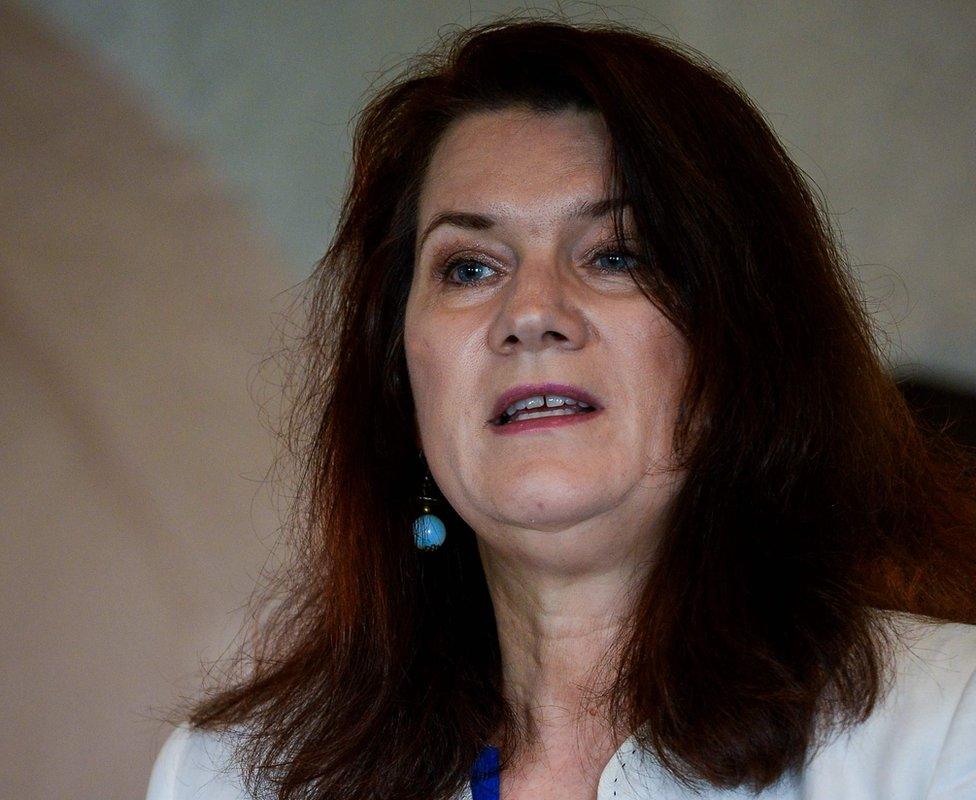
Some media outlets have speculated that a weak Conservative-led coalition in the UK might end up making concessions that result in a "softer" Brexit, guaranteeing continued freedom of movement for Swedes and Brits switching between the two countries.
But other vocal commentators are less hopeful.
The chief economist at the Stockholm Chamber of Commerce, Andreas Hatzigeorgiou, is among those arguing that May will end up cowing to the influence of hard Brexiteers within her new government. He told the BBC he also believes that the EU may "take advantage" of her weaker mandate by offering a poor trade deal designed to discourage other member states from jumping ship.
Watching closely from the sidelines is the Sweden Democrat party (SD), which is pushing for a fresh referendum on Sweden's own membership of the European Union.
The anti-immigration group scored 12.9% of the vote in the last general election, but has since seen its support shoot up to 18%, a year ahead of the Scandinavian country's next general election.
However, the same nationwide poll found that the proportion of Swedes who are in favour of EU membership has actually increased since Britons voted for Brexit, while UKIP's poor showing at the ballot box is being seen as an encouraging sign by those seeking to limit SD's influence in the Swedish parliament.



- Published12 June 2017
- Published14 August 2017
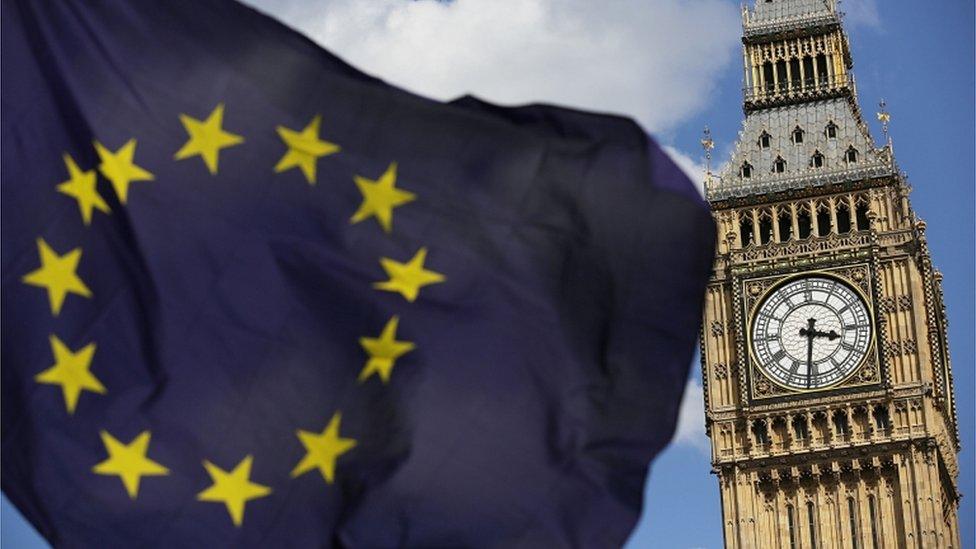
- Published30 December 2020

- Published28 April 2017
